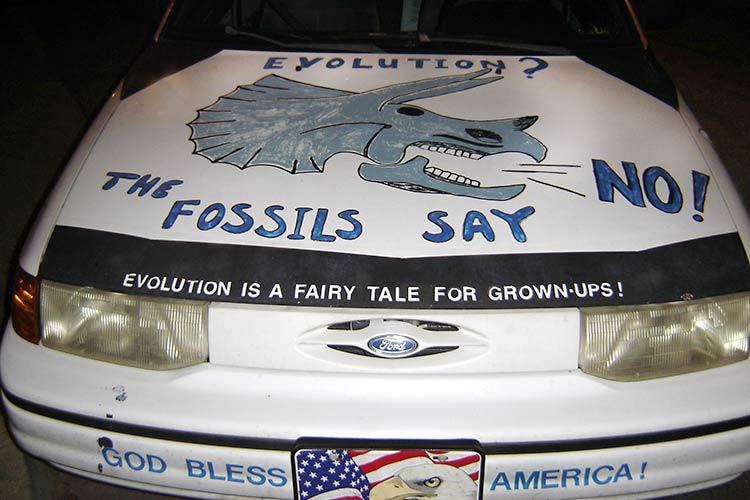Psych prof: Science vs. religion may be the wrong question
Professor Tania Lombrozo — who writes about psychology, cognitive science and philosophy in popular as well as scholarly outlets — explores beliefs about atheism and evolution in two recent pieces.

August 14, 2015

Detail of “The Descent of the Modernists,” by E.J. Pace, first published in Christian Cartoons, 1922 (via Wikimedia Commons; click for full image)
Would voters entrust the White House to an atheist? Are atheists less trustworthy than those who believe in God? Or do atheists tend toward ethical behavior more than believers?
Berkeley professor Tania Lombrozo writes about psychology, cognitive science and philosophy in popular as well as scholarly outlets. In a recent piece on the NPR blog 13.7: Cosmos & Culture, she looks at changes in American attitudes about atheism over time, and shares talks by two fellow psychologists on current research findings.
In a longer piece, published this month in Boston Review, Lombrozo asks timely questions on religion and science: Can science provide the same existential benefits as religion? What makes creationism an attractive theory? Do we need to rethink how evolutionary ideas are presented?
Research on the existential and emotional aspects of a scientific worldview and scientific beliefs ”is in its infancy,” she writes. “But the findings so far suggest we’ve been asking the wrong questions when it comes to understanding the widespread rejection of human evolution in favor of divine creation.
“The relevant contrast might not be between science and religion,” she suggests, “but between beliefs that promise an orderly universe — one in which individual humans or some external forces, be they natural or divine, impose structure and corral uncertainty — and those that do not.”
Read Tania Lombrozo’s pieces on 13.7: Cosmos & Culture and the Boston Review website.